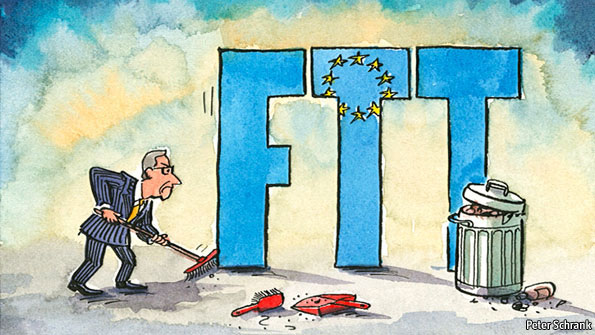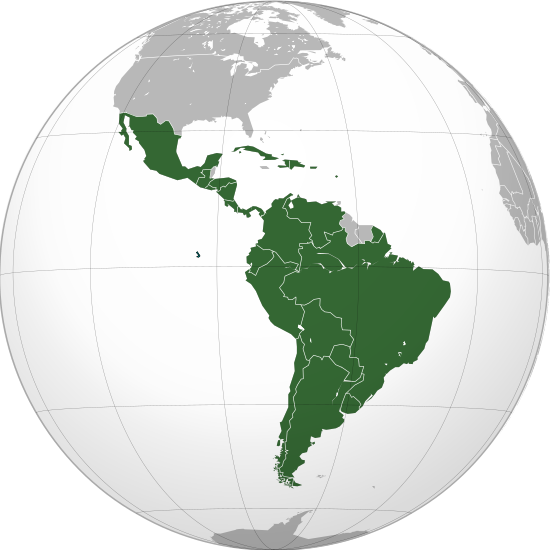In Search of Growth Strategies
Michael Spence
Michael Spence, a Nobel laureate in
economics, is Professor of Economics at NYU’s Stern School of Business,
Distinguished Visiting Fellow at the Council on Foreign Relations,
Senior Fellow at the Hoover Institution at Stanford University, Academic
Board Chairman of the Asia Global Institute in Hong … read more


In Search of Growth Strategies
MILAN – In 2008, the Commission on Growth and Development, which I had the privilege of chairing, produced a report
updating our knowledge about sustainable growth patterns. Then, as now,
one thing is clear: the policies that underpin multi-decade periods of
high growth, structural transformation, rising employment and incomes,
and dramatic reductions in poverty are mutually reinforcing. The impact
of each is amplified by the others. They are ingredients in recipes that
work – and, as with recipes, missing items can substantially undermine
the outcome.
To
understand the weak, deteriorating, and fragile growth patterns seen
today in many countries and in the global economy as a whole, one should
compare what is actually happening with what reasonably comprehensive
growth strategies might look like. Of course, there are many policies
that sustain high growth, and to some extent they are country-specific.
But a few key ingredients are common to all known successful cases.
The World’s Reluctant Central Banker
Andrés Velasco
Andrés Velasco, a former presidential
candidate and finance minister of Chile, is Professor of Professional
Practice in International Development at Columbia University's School of
International and Public Affairs. He has taught at Harvard University
and New York University, and is the author of num… read more


The World’s Reluctant Central Banker
NEW
YORK – This is supposed to be the era of powerful central banks, ready
to wield their firepower worldwide. Yet the most powerful of all central
banks – the United States Federal Reserve – is also the most reluctant
to acknowledge its global reach.
Like
all central banks, the Fed has a local mandate, focused on domestic
price stability and employment. But, unlike most central banks, the Fed
has global responsibilities. This tension is at the root of some of the
most threatening problems facing the world economy today.
The
Fed has global responsibilities for two closely related reasons,
neither of which has much to do with the need to avoid the “currency
wars” that so concerned former Brazilian Finance Minister Guido Mantega.
Germany’s Strange Turn Against Trade
Marcel Fratzscher
Marcel Fratzscher, a former head of
International Policy Analysis at the European Central Bank, is Committee
Chairman and President of the think tank DIW Berlin.

Germany’s Strange Turn Against Trade
BERLIN
– The window of opportunity to complete the Transatlantic Trade and
Investment Partnership (TTIP) between the United States and the European
Union is closing quickly. National elections will be held this year and
next in the US, France, and Germany, and the campaigns will play out in
an environment that is increasingly hostile to international agreements
in any form. The biggest risk might come from the least likely source:
Germany, an export powerhouse.
As it stands, some 70% of Germans citizens oppose
the TTIP, almost twice the average in other European countries. They
overwhelmingly believe that Germany will not benefit economically, that
lower-skill workers’ wages will suffer, that large corporations will
gain power at the expense of consumers, that data and environmental
protection will be compromised, and that citizens’ rights will be
undermined.
The Overselling of Financial Transaction Taxes
Kenneth Rogoff
Kenneth Rogoff, Professor of
Economics and Public Policy at Harvard University and recipient of the
2011 Deutsche Bank Prize in Financial Economics, was the chief economist
of the International Monetary Fund from 2001 to 2003. His most recent
book, co-authored with Carmen M. Reinhart, is This Time is… read more


The Overselling of Financial Transaction Taxes
CAMBRIDGE
– However November’s presidential election in the United States turns
out, one proposal that will likely live on is the introduction of a
financial transaction tax (FTT). While by no means a crazy idea, an FTT
is hardly the panacea that its hard-left advocates hold it out to be. It
is certainly a poor substitute for deeper tax reform aimed at making
the system simpler, more transparent, and more progressive.
As American society
ages and domestic inequality worsens, and assuming that interest rates
on the national debt eventually rise, taxes will need to go up, urgently
on the wealthy but some day on the middle class. There is no magic
wand, and the politically expedient idea of a “Robin Hood” tax on
trading is being badly oversold.
Latin America’s Rising Right
Mohamed A. El-Erian
Mohamed A. El-Erian, Chief Economic
Adviser at Allianz and a member of its International Executive
Committee, is Chairman of US President Barack Obama’s Global Development
Council. He previously served as CEO and co-Chief Investment Officer of
PIMCO. He was named one of Foreign Policy's Top 100 Glob… read more

Latin America’s Rising Right
LAGUNA
BEACH – From changes in government in Argentina and Brazil to
mid-course policy corrections in Chile, Latin American politics appears
to be undergoing a rightward shift.
But rather than being “pulled” by the attractiveness of the economic
policies that the right is advocating, this complex phenomenon is
predominantly a reflection of the “push” implied by anemic growth and
the disappointing provision of public goods, especially social services.
Indeed, we can think
of the shift as a Latin American variant of the West’s blossoming
romance with anti-establishment movements. And that means that the
region’s governments must be seen to deliver to their citizens.
Otherwise, the shift will prove to be only a stop on an uncertain path –
politically more complicated and economically harder to navigate –
toward an even less stable destination.
The Sociology of War
Brought to light by an American journalist and an Austrian economist
by Dan Sanchez

The breakout of World War I upended many lives, including
those of two great thinkers: the Austrian economist Ludwig von Mises and
the American journalist Randolph Bourne.
The young Mises had just revolutionized the economics of money and
the business cycle. And he was on the verge of still more breakthroughs
when his career was interrupted by the Great War. Other economists in
Austria were given cushy assignments in war planning offices. But Mises,
who was radically out of step with prevailing politics, was sent to the
front lines as an artillery officer.
Bourne had been pursuing independent study in Europe under
Columbia University’s prestigious Gilder Fellowship for travel abroad.
The continent-wide hostilities drove him back to the States where he
resumed his previous career as a magazine writer. But Bourne was
radically out of step with the militarism then sweeping America. His
anti-war writing got him censored and shunned, both professionally and
socially.
The Curse of Oil
|
|
| by Thomas Gale Moore |
|
The Bush Administration has made much of Iraq's
oil reserves. It wants to use the proceeds from the sale of petroleum to pay
off the country's debts, cover the costs of reconstruction and government expenses.
It has been hectoring European governments and the Russian government to write
off much of the debt that Iraq owes them so that the money can be spent on rebuilding
that devastated country. In general, most people and governments have viewed
Iraqi oil as a boon; but its existence has major downsides. Oil is more of a
curse than a benefit.
First is the quandary it creates for possession of the oil fields. Kirkuk is surrounded by the northern oil fields, which represent about 40 percent of all oil in Iraq. The city of Kirkuk includes Kurds, Arabs, Turkmens, and Assyrian Christians. Except for the Christians, each group claims to be the largest. During Saddam Hussein's regime, Arabs were encouraged to migrate to the region and occupy farms and houses. |
The Curse of Power

|
| by Thomas Gale Moore |
|
We have all heard Lord Acton's admonition, "Power
corrupts and absolute power corrupts absolutely." Most of us believed this
referred only to absolute rulers, but its scope is much more widespread. Today
the U.S. is the only superpower; as such it has almost absolute power. It can
go anywhere, wipe out any state, conquer any army, and ruin any economy with
economic sanctions. As such it sees itself as the existential authority, the
chosen state, the "city on a hill" that can bring democracy, freedom,
and virtue to the world, if necessary through the barrel of a gun.
While the neocons have emphasized the use of power to bring enlightenment to the world, especially the Middle East, the U.S. has a long history of bearing the "White Man's Burden," of conquering foreign territories, either to bring Christianity to Roman Catholic Filipinos, to annex pagan Hawaii, to install friendly governments in Central America or to rid Cuba of the colonial rule of Spain by installing our benevolent governance. Manifest destiny, a staple of our social studies courses in grade school, led us to remove the uncivilized and pesky "redskins" to fulfill our goal of a coast-to-coast empire. |
Questioning the Powerful

by David R. Henderson
"I thought that when we showed up for class, someone else would be teaching it," said one of my students at the start of my class on Monday, April 7, 2014.
"Really?" I asked. "Why?"
"Because of that question you asked the Admiral on Friday," he answered.
I looked around and saw the looks on the faces of a number of other students. They weren’t necessarily surprised that I was still in my job, but some of them did say that if they had asked the question I had asked, their careers in the military could well be over. That’s too bad because all I did was ask a question, a question that gave the Admiral an easy way out.
An Economist’s Case for a Non-Interventionist Foreign Policy
My talk at the Hoover Institution
 The Naval War College, based in Newport, Rhode Island, runs a special 11-month
course for foreign Navy officers. On February 3, the Naval War College held
a special morning session at the Hoover Institution, where I am a research fellow.
I was invited to speak. The best invites, in my experience, are those for which
I get to choose the topic. That happened in this case. So the topic I chose
was “An Economist’s Case for a Noninterventionist Foreign Policy.”
The Naval War College, based in Newport, Rhode Island, runs a special 11-month
course for foreign Navy officers. On February 3, the Naval War College held
a special morning session at the Hoover Institution, where I am a research fellow.
I was invited to speak. The best invites, in my experience, are those for which
I get to choose the topic. That happened in this case. So the topic I chose
was “An Economist’s Case for a Noninterventionist Foreign Policy.”The four speakers, in order, were Gary Roughead (Admiral-Retired), formerly the Chief of Naval Operations and a Distinguished Visiting Fellow at Hoover, me, Bruce Thornton, a professor of classics and humanities from Fresno State University and a research fellow at Hoover, and George P. Shultz, formerly Secretary of State under Ronald Reagan and a Distinguished Fellow at Hoover.
The audience was, I believe, all Navy officers. There were 47 of them, representing 44 countries. I was warmly received by many of them, especially the officer from Bangladesh, and courteously received by the few U.S. military officers in attendance.
As Ukraine Collapses, Europeans Tire of US Interventions
by Ron Paul

According to US and EU governments – and repeated without question by the mainstream media – the Ukrainian people stood up on their own in 2014 to throw off the chains of a corrupt government in the back pocket of Moscow and finally plant themselves in the pro-west camp. According to these people, US government personnel who handed out cookies and even took the stage in Kiev to urge the people to overthrow their government had nothing at all to do with the coup.
Vietnam War at 50: Have We Learned Nothing?
by Ron Paul
Last week Defense Secretary Ashton Carter laid a wreath at the Vietnam Veterans
Memorial in Washington in commemoration of the "50th anniversary"
of that war. The date is confusing, as the war started earlier and ended far
later than 1966. But the Vietnam War at 50 commemoration presents a good opportunity
to reflect on the war and whether we have learned anything from it.
Some 60,000 Americans were killed fighting in that war more than 8,000 miles away. More than a million Vietnamese military and civilians also lost their lives. The US government did not accept that it had pursued a bad policy in Vietnam until the bitter end. But in the end the war was lost and we went home, leaving the destruction of the war behind. For the many who survived on both sides, the war would continue to haunt them.
What Do Terrorists Want?
After the terrorist violence in Brussels many people, including Barack Obama,
said we should not change our way of life and live in fear because that is
what terrorists want. Maybe, but is that all they want? It seems
that something important is left out of the story. In the classical model
of terrorism, instilling fear (along with causing death and injury) is not
an end in itself. It’s a means to an end.
Terrorists don’t necessarily get a kick out creating carnage and fear (though it is possible). Primarily they want the survivors’ fear converted into action aimed at changing their government’s policy. Thus terrorism, if it is to have any meaning, is a political, not a sadistic, act. In the paradigmic case a weak nonstate group, unable to resist a state’s military or to change its policy directly, terrorizes the civilian population of that state in the hope it will demand a change in foreign or domestic policy. (Let’s leave aside for this discussion that terrorism has been strategically (re)defined by the United States and its allies such that it can apply only to their adversaries, even when they attack military targets instead of civilians.)
Terrorists don’t necessarily get a kick out creating carnage and fear (though it is possible). Primarily they want the survivors’ fear converted into action aimed at changing their government’s policy. Thus terrorism, if it is to have any meaning, is a political, not a sadistic, act. In the paradigmic case a weak nonstate group, unable to resist a state’s military or to change its policy directly, terrorizes the civilian population of that state in the hope it will demand a change in foreign or domestic policy. (Let’s leave aside for this discussion that terrorism has been strategically (re)defined by the United States and its allies such that it can apply only to their adversaries, even when they attack military targets instead of civilians.)
The Ongoing Rape of Japan ... by the US military
by Justin Raimondo When President Obama went to Hiroshima, the American media focused on what
he would – or wouldn’t – say about Harry Truman’s horrendous war
crime against the Japanese people. Would he apologize? Leaving aside how
one apologizes for such a monstrous act – short of committing seppuku – as it
turned out he just spoke in harmless generalities about the dangers of nuclear
weapons, expressing a commendable albeit vague wish to rid the world of them.
What the pundits mostly ignored, however, was Japanese Prime Minister Shinzo
Abe’s outrage at the
latest murderous sex crime committed by an American soldier stationed on
Okinawa; the brutal murder of 20-year-old Rina Shimabukuro by a US military
contractor.
When President Obama went to Hiroshima, the American media focused on what
he would – or wouldn’t – say about Harry Truman’s horrendous war
crime against the Japanese people. Would he apologize? Leaving aside how
one apologizes for such a monstrous act – short of committing seppuku – as it
turned out he just spoke in harmless generalities about the dangers of nuclear
weapons, expressing a commendable albeit vague wish to rid the world of them.
What the pundits mostly ignored, however, was Japanese Prime Minister Shinzo
Abe’s outrage at the
latest murderous sex crime committed by an American soldier stationed on
Okinawa; the brutal murder of 20-year-old Rina Shimabukuro by a US military
contractor.
 When President Obama went to Hiroshima, the American media focused on what
he would – or wouldn’t – say about Harry Truman’s horrendous war
crime against the Japanese people. Would he apologize? Leaving aside how
one apologizes for such a monstrous act – short of committing seppuku – as it
turned out he just spoke in harmless generalities about the dangers of nuclear
weapons, expressing a commendable albeit vague wish to rid the world of them.
What the pundits mostly ignored, however, was Japanese Prime Minister Shinzo
Abe’s outrage at the
latest murderous sex crime committed by an American soldier stationed on
Okinawa; the brutal murder of 20-year-old Rina Shimabukuro by a US military
contractor.
When President Obama went to Hiroshima, the American media focused on what
he would – or wouldn’t – say about Harry Truman’s horrendous war
crime against the Japanese people. Would he apologize? Leaving aside how
one apologizes for such a monstrous act – short of committing seppuku – as it
turned out he just spoke in harmless generalities about the dangers of nuclear
weapons, expressing a commendable albeit vague wish to rid the world of them.
What the pundits mostly ignored, however, was Japanese Prime Minister Shinzo
Abe’s outrage at the
latest murderous sex crime committed by an American soldier stationed on
Okinawa; the brutal murder of 20-year-old Rina Shimabukuro by a US military
contractor.Rehearsing for World War III
Operation “Anakonda 16” is a dangerous provocation
 As I write this, US troops are building a bridge across Poland’s Vistula river,
and conducting a nighttime helicopter assault to secure the eastern part of
the country against a Russian assault.
As I write this, US troops are building a bridge across Poland’s Vistula river,
and conducting a nighttime helicopter assault to secure the eastern part of
the country against a Russian assault.Has World War III started? Well, not quite yet, although it’s not for want of trying.
This is Operation “Anakonda 16.” Thirty-one thousand troops, 14,000 of them American, are conducting war games designed to secure an Allied victory in World War III. The exercises involve “100 aircraft, 12 vessels and 3,000 vehicles,” and precede the upcoming NATO summit, which is expected to approve the stationing of yet more troops – mostly Americans – in eastern Europe.
NATO claims this is all strictly “defensive” in nature, designed to deter Russian “aggression” – but who is the real aggressor?
FBI Seeks Warrantless Access to Americans’ Browser History
Comey Claims 'Typo' in Law Not Giving Him That Power
by Jason Ditz,
 While
telephone metadata was just who called whom and for how long, the
Internet version amounts to unrestricted access to the browser history
of every American, including what websites they visit, and what pages in
particular they read.
While
telephone metadata was just who called whom and for how long, the
Internet version amounts to unrestricted access to the browser history
of every American, including what websites they visit, and what pages in
particular they read.Privacy groups are blasting the move, noting that the data would “paint an incredibly intimate picture of an individual’s life,” including things like political affiliation, medical conditions, religion, and sexual orientation.
FBI Director James Comey, however, insists that the law which lists all the metadata they can collect without a warrant, and which doesn’t mention browser histories, amounts to a “typo” in the law, and is demanding that Congress “fix” the matter so the FBI can force companies to hand over all that personal data. The FBI maintains the list in the law was meant to be “illustrative” of the type of things they can demand, and not all-inclusive.
Facebook, Yahoo, and Google are among a number of technology companies lining up to resist the change in the law, both because of the lack of judicial oversight such a broad new data collection plan would involve, and also because in practice the change in law would force them to do all the heavy lifting of collecting this data for the FBI to sift through.
Tuesday, June 7, 2016
What if the Minimum Wage Increase Is a Fraud?
By Andrew P. Napolitano
What if the latest craze among the big-government crowd in both major political parties is to use the power of government to force employers to pay some of their employees more than their services are worth to the employers?
What if this represents an intrusion by government into the employer-employee relationship? What if this consists of the government’s effectively saying that it knows the financial worth of employees’ services better than the employers and the employees do?
What if the minimum wage, now on the verge of being raised to $15 per hour everywhere in the land, is really the government’s using threats of ruin and force to transfer wealth? What if the $15-per-hour figure is based on a political compromise rather than on free market forces or economic realities?
What if these wealth transfers will have profound unintended economic consequences and will negatively affect everyone?
What if the latest craze among the big-government crowd in both major political parties is to use the power of government to force employers to pay some of their employees more than their services are worth to the employers?
What if this represents an intrusion by government into the employer-employee relationship? What if this consists of the government’s effectively saying that it knows the financial worth of employees’ services better than the employers and the employees do?
What if the minimum wage, now on the verge of being raised to $15 per hour everywhere in the land, is really the government’s using threats of ruin and force to transfer wealth? What if the $15-per-hour figure is based on a political compromise rather than on free market forces or economic realities?
What if these wealth transfers will have profound unintended economic consequences and will negatively affect everyone?
Who Answers for Government Lies?
Here is a quick pop quiz. What happens if we lie to the government? What happens if the government lies to us? Does it matter who does the lying?
Last year, the Obama administration negotiated an agreement with the government of Iran permitting Iran to obtain certain materials for the construction of nuclear facilities. It also permitted the release of tens of billions of dollars in Iranian assets that had been held in U.S. banks and that the courts had frozen, and it lifted trade sanctions. In exchange, certain inspections of Iranian nuclear facilities can occur under certain circumstances.
During the course of the negotiations, many critics made many allegations about whether the Obama administration was telling the truth to Congress and to the American people.
The
Libertarian Party just nominated two former governors, New Mexico’s
Gary Johnson for president and Massachusetts’ Bill Weld for vice
president, in a year when more voters than ever may look for a third
choice.
 But Johnson and Weld
at times seem to be working hard to push away one particularly homeless
voting bloc that could ally with Libertarians this year: social
conservatives. From their rhetoric to their policy proposals, the
Libertarian nominees seem to be running against conservatives more than for liberty.
But Johnson and Weld
at times seem to be working hard to push away one particularly homeless
voting bloc that could ally with Libertarians this year: social
conservatives. From their rhetoric to their policy proposals, the
Libertarian nominees seem to be running against conservatives more than for liberty.
Weld and Johnson held their first post-nomination joint interview on Tuesday, on liberal network MSNBC. “We’ve never bought into this anti-choice, anti-gay…sense of the Republican Party,” Weld said, as his first comment to the national television audience.

Libertarian
Party presidential candidate Gary Johnson gives acceptance speech
during National Convention held at the Rosen Centre in Orlando, Florida, REUTERS/Kevin Kolczynski
Weld and Johnson held their first post-nomination joint interview on Tuesday, on liberal network MSNBC. “We’ve never bought into this anti-choice, anti-gay…sense of the Republican Party,” Weld said, as his first comment to the national television audience.
Neither candidate is getting the immigration issue right
Take Donald Trump’s endlessly repeated promise to buy a wall along the U.S.-Mexican border. As I’ve pointed out, that is attacking a problem that no longer exists or has diminished greatly. Net migration from Mexico to the U.S. was around zero between 2007 and 2014.
But Trump’s critics also miss something. Walls can actually work. The wall along the border near San Diego worked well enough a dozen years ago that many migrants crossed into the Arizona desert instead. It may not be feasible to build a wall along the Rio Grande in Texas, but the border there can be patrolled more effectively than it is now.
Trump’s pointing out that some illegal immigrants from Mexico have been rapists drew harsh criticism. But it’s true: Some have been rapists, and on average immigrants from Mexico have had lower skills and less law-abiding backgrounds than immigrants from any other country. That makes sense when you consider that it’s easier to cross a 2,000-mile land-and-shallow-river border than an ocean.




No hay comentarios.:
Publicar un comentario